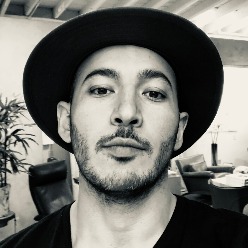This is pretty much the only book I’ve read recently that covers three topics I’m really into: startups, immigrant life, and love/marriage. I wish it also included kids (spoiler alert).
At first, I thought it sounded like a true story, but it actually weaves in real elements from the author, Yong Kim, a successful entrepreneur from Korea. His time at Harvard and his boarding school experience overlap with the story.
English is Yong’s second language, and he shares moments from that journey.
“It’s kind of refreshing, actually. I don’t think I’ve ever met a teenage guy who talks like you. You speak like someone who thinks before they talk. It makes what you say feel real.”
Another part that touched me deeply was his relationship with his father. I had a similar experience: I also went to boarding high school and then college, and I didn’t have much of a relationship with my dad. Everything he described resonated with me.
When I left Korea at eleven, I was just a child. Now, I returned as a near adult. While most of my friends had learned essential life skills from their fathers, I had taught myself: how to ride a bike, shave, tie a necktie, shine shoes, start a fire with a stick, change a flat tire, and ask a girl to a dance. I had traveled to more countries, tasted more cuisines, and experienced more international traditions than my father ever had. Most importantly, I had found the love of my life. All of it by myself. “You’ve missed witnessing them, Father.” A lurching ache sliced through my chest. Yet I didn’t resent him. I still pined for his love. A nod, a thumbs-up, a pat on the back. Just anything to show me his approval.
Again, this book strongly connected with my upbringing and my current startup life, as well as the balance with family.
The dirty secret of being a CEO. No applause, no lifeline. Only the burden of making decisions no one else was willing to make, and bearing the consequences. Still, I kept moving forward.
It also works as a semi-business book, sharing insights about family business versus your own startup. For example, he nailed something I’ve always believed—distribution is king—when describing his time helping with his family’s business in Korea.
What many didn’t realize about the beverage industry was that, at its core, it was all about sales and distribution. Yes, the products had to taste great and have attractive packaging to a certain point, but if they were not on supermarket shelves, in convenience store refrigerators, or at restaurants, it was game over. Vendors fiercely battled for prime spots, like the coveted endcap displays at supermarkets. They all knew just how critical that visibility was to their success.
Lastly, he summarized entrepreneurship so well.
These were the dark sides of entrepreneurship no one warned about. Just like the unseen challenges of falling in love. Love, much like entrepreneurship, was romanticized for its magic, excitement, and joy. But the emotional debris—heartbreak, disappointment, and the slow burn of resentment—rarely made the headlines, obscured by the fantasy of happily-ever-afters. In many ways, building a company resembled falling in love. Both were beautiful and bold. But both had the power to break a person.
I really think more founders should write similar fiction books, especially immigrant founders. I’ve been trying to find more immigrant writers who came to the U.S. later in life. I believe high school is the sweet spot—you become part of American culture while still holding on to the values of your home country. In contrast, I came right after college, so I still miss some norms and cultural nuances, even though I try to fill the gap with my business hustle and by acting a bit extravagant to fit into the culture.

Thank you so much for taking the time to read my book, and for writing such a thoughtful and kind review.
I wasn’t expecting to come across it, and it genuinely made my day. Knowing that the story resonated enough for you to reflect on it and share it with others means more to me than I can say.
I’m deeply grateful for your time, your words, and your generosity.
Thank you,
Yong
Sorry, just saw your comment — life’s been happening lately. As you know, being a full-time growth-stage founder and a father of two as an immigrant isn’t exactly an easy task 🙂
We’re both in the Bay Area — would love to grab a coffee sometime or join one of your reader meetups if you’re hosting one.